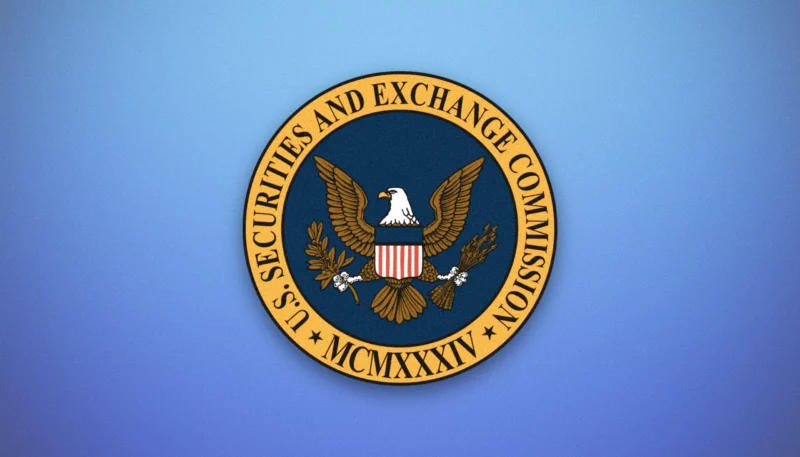For startups looking to raise capital, Rule 506 of Regulation D is probably the most commonly used exemption from securities registration requirements. It allows a company to make offers and sales to an unlimited number of accredited investors[1] in order to raise an unlimited amount of money. One of the key conditions placed on a Rule 506 offering is that no general solicitation or general advertising can be used by the issuer or any person acting on its behalf in connection with the securities offering. This means that a startup looking to raise capital currently cannot advertise its offering publicly and generally must limit its investors to the personal connections of the company’s principals. The SEC has stated in its various rulings that the key consideration is whether there is a “substantive pre-existing relationship” between the issuer or its agent and the offerees. Of course the vagueness of this standard provides a great amount of legal uncertainty for startups looking to raise capital, as there are any number of situations that could arise that fall within a grey area.
However, the recently passed JOBS Act required the SEC, by July 4, 2012, to revise Rule 506 to provide that the prohibition against general solicitation and general advertising does not apply to offers and sales of securities made pursuant to Rule 506, provided that all purchasers of the securities are accredited investors. The Act also required that the revised Rule 506 require the issuer to take reasonable steps to verify that such purchasers are accredited investors. In addition, the JOBS Act permits new online platforms by which such offerings may be conducted. A platform pairing investors with companies, co-investors and those providing ancillary services (such as due diligence or provision of standard documents) will not be required to register as a broker or dealer with respect to securities offered and sold in compliance with Rule 506, if such platform (and its affiliates) do not receive commissions or other compensation on the sale of such securities.
These provisions will be extremely helpful to startups looking to raise capital. They essentially will provide for a crowdfunding solution for companies looking to raise capital solely to accredited investors.[2] This may revolutionize the way angel investment rounds (and possibly even venture rounds) are conducted. Unfortunately, they will not take effect until the SEC issues new regulations and the SEC has missed its deadline of July 4. SEC Chairman Mary Schapiro gave testimony before a House committee recently to provide updates on the implementation of the JOBS Act and the status of rulemaking that is required under the JOBS Act. She stated that the “90-day deadline does not provide a realistic time frame for the drafting of the new rule, the preparation of an accompanying economic analysis, the proper review by the Commission and an opportunity for public input” but that the SEC will complete its rulemaking “in the very near future.” The SEC has also announced that it will consider this issue at its August 22, 2012 open meeting. It is not clear what will occur at that open meeting and it is probable that the SEC will merely issue proposed regulations for comment, rather than finalize anything that startups will be able to use immediately.
What could be taking so long? After all, removing the general solicitation prohibition is relatively straightforward. What is giving the SEC far more pause is imposing regulations related to the requirement that issuers take reasonable steps to verify that all purchasers are accredited investors. There a number of categories an investor may fall under that would render him “accredited.” The two most common are (1) an investor with a minimum net worth of $1 million (excluding his or her primary residence), held individually or together with a spouse, or (2) an investor who has individual income in excess of $200,000 per year, or joint income together with such person’s spouse, in excess of $300,000 per year.
The definition of accredited investor also presently includes those investors that the issuer reasonably believes to be accredited investors. This has led to the common practice where an investor will execute a questionnaire or other subscription document where the investor makes a representation to the issuer that the investor qualifies as an accredited investor. Does this practice fulfill the “reasonable steps” that Congress has mandated? Public statements by SEC Commissioners and staff members indicate that they believe that this self-certification of accredited investor status may not be sufficient to protect investors, which suggests that the new regulations will impose more rigorous qualification and verification requirements. What those could possibly be is anybody’s guess. The new regulations could require issuers to obtain financial statements from their investors to prove that they qualify or could provide that 3rd party verification is required. Or the SEC may propose something else entirely.
Therefore, startups continue to remain in limbo, knowing that better options for capital raising await them in the near future, yet unable to use them and unsure of what conditions will be placed upon them.
Footnotes
[1] Rule 506 also permits sales to up to 35 non-accredited investors, but because of the onerous conditions placed upon the issuer who includes such non-accredited investors, it is rarely used. For more information on this problem, see my earlier post: Can a friends and family round include non-accredited investors? Should it?
[2] Of course, you’ll recall that the JOBS Act also provides for a separate crowdfunding provision that permits crowdfunding to the general public. However, for reasons I’ve discussed previously, I don’t think the new crowdfunding exemption will be all that useful. I believe the Regulation D reforms in the JOBS Act, in the long run, will be far more beneficial to startups.
———————————
© 2012 Alexander J. Davie — This article is for general information only. The information presented should not be construed to be formal legal advice nor the formation of a lawyer/client relationship.




